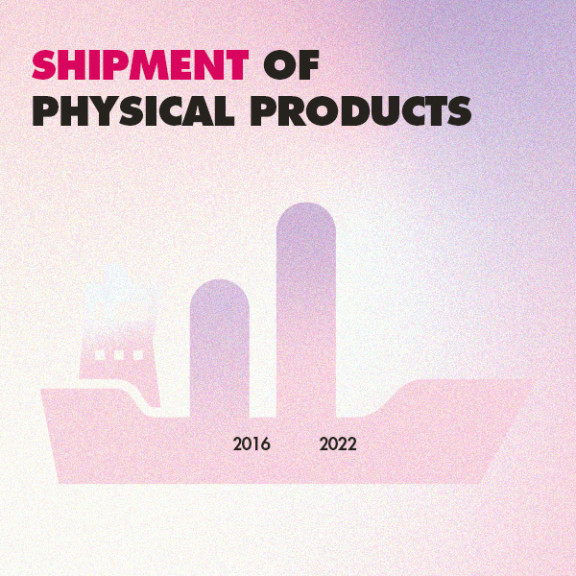
Cross-border e-Commerce: five common challenges and solutions
Your online business was expanding gradually before the pandemic, but it expanded actually well beyond your wildest dreams. Your brand is now well positioned within your own country, but to fully leverage your flawless digital capabilities and plan, you must expand into new markets and areas.
More brands are entering new markets, which demonstrates that you are most definitely not the only one with an international perspective. Making sure your digital firm is prepared for international markets, however, is not without its difficulties. Here, SQLI examines some of the major challenges and suggests solutions.
Challenge
Setting up a digital store in another nation requires extensive industry knowledge; it is not as simple as hiring a translation to replace every word on your present website. First of all, there can be limitations on your product. Alcohol, food, and electronics are all subject to varying laws depending on the country, and they may even be forbidden.
Furthermore, it could be challenging to proceed initially due to how you conduct business upsetting local norms, laws, or ways of life.
Solution
The sooner you can set foot in this area or consult with professionals there, the better. It might be crucial to work closely with an experienced partner who has a base in this nation or has aided other companies in this region, or to engage with a global digital agency.
With more than 2,100 people spread across 13 nations in Europe and the Middle East, SQLI has expertise serving hundreds of businesses across a wide range of geographic areas.
A person who has a thorough working knowledge of so many nations is frequently on hand and can be a crucial component in your company plans from the very first meeting if you have questions about how customs, payment options, or logistics vary from country to region.
Challenge
Language barriers can be challenging to get over when communicating with locals to assist with logistics or when trying to communicate through your various digital channels.
In both the short and long term, providing customer service in multiple languages can be vital to the growth and adaptation of the company.
According to Common Sense Advisory data from 2020, which included responses from respondents in 29 countries, 40% of digital buyers would not purchase a product in a different language, with 65% preferring content in their own language. This demonstrates how crucial it is to rapidly and accurately execute your online conversation.
Solution
Retailers should collaborate with a digital agency that can assist in regionally and linguistically adapting their online presence. A physical presence in these nations can also aid in resolving any potential regulatory or logistical issues.
Does the partner have a presence here? Have they created platforms for brands that are similar in this language or nation?
With two nearshore service centers in France, two offshore service centers in Morocco, and one in Mauritius, SQLI offers a wide spectrum of international assistance in addition to its experience working with businesses all over the world. Customers now have access to unmatched service and aftercare in both French and English, around-the-clock.
Challenge
While moving and distributing your goods around Europe could be rather simple, you might face a distinct set of challenges while crossing borders in other regions, like the Middle East.
Regulations that conflict, different delivery services, and even the quality of the roads in different regions can all contribute. Customers in some nations often fail to provide accurate addresses, which results in a variety of delivery crew delays.
Solution
Do your research. Could you establish your international company in a specialized hub that can handle several business needs simultaneously?
For instance, at CommerCity in Dubai, a partner of SQLI, digital retailers can set up shop in a location next to Dubai International Airport, immediately reducing delivery times because the warehouses are close to the airport and the time required for regional distribution of goods is reduced. Reduced return times and expenses are also a benefit.
For new merchants, a customs consulting service is available to help them navigate the bureaucracy. Companies can promote a seamless transfer of goods and potentially save time and money by having a solid understanding of the customs procedure.
In addition, businesses can profit from licensing, support for starting a business, end-to-end logistics, warehouse space, pre-integrated and pre-configured e-Commerce platforms, performance marketing and content support, assistance with laws, and e-Commerce strategy advice.
Similar e-Commerce centres are already popping up everywhere in the world, and by having experts on hand, they may ultimately save a lot of time and money.
Challenge
You may not be aware that some nations favor Cash on Delivery (CoD). Do you distinguish between Apple Pay and Alipay?
The most popular payment methods vary greatly by area, with Visa controlling the majority of the market for foreign credit cards in the Middle East and Africa and Discover being well-liked in Brazil with 57 million cardholders worldwide.
Additionally, e-Wallets are growing in acceptance across the globe, with Apple Pay leading the way in the US and Alipay being used by 48% of Chinese consumers. In the Middle East, cash on delivery is still common, although credit cards like Visa and MasterCard are growing up. It's crucial to comprehend the various marketplaces and modify your payment solutions accordingly.
Solution
Your company must accept payments in the format clients desire and set up reliable payment mechanisms to do this if it is to operate successfully in different areas.
The companies Klarna and Tabby, which let users check in without using a debit card and make purchases from websites and pay back in monthly installments or up to 30 days after delivery, are just two of the many payment solution providers that SQLI partners with to offer global solutions.
Consumers now expect to discover a variety of payment options while shopping online, despite retailers' ongoing efforts to enhance the customer experience. One-size-fits-all payment methods must be abandoned by merchants, and it is essential to conduct thorough research on each nation, industry, and customer group before selecting which payment method is best for your area and business.
Challenge
Without the problems that cross-border e-Commerce can bring to light, returning items purchased in one nation can be challenging enough.
Duty, tax, and unreliable delivery companies can be difficult to account for, and if you don't do it right, you might soon lose clients.
Solution
Customers desire easy returns and free shipping. But having too many returns can hurt your business.
Better personalized digital experiences that give clients a better understanding of what they are buying can help reduce this problem. This might be reduced even more with the help of AR gadgets that let shoppers virtually try on things like trainers or makeup before they buy them.
Automate the print-return label process by working with a delivery company that already has mechanisms in place for foreign returns to save time and money.
Next steps
B2C (business to consumer) B2B (business to business) and C2C (private transactions between two individuals) are the three different types of cross-border e-commerce.With each, it is crucial that your business and digital platform is prepared for this expansion.
If you believe you are, make sure you have researched the market, taking into account regional cultures, customs, and payment options. What would the logistics, distribution, and return procedures entail?
If you get things wrong, your ambitions can abruptly come to a stop. If you do it right, there has never been a better time for your digital firm to grow into new markets.
